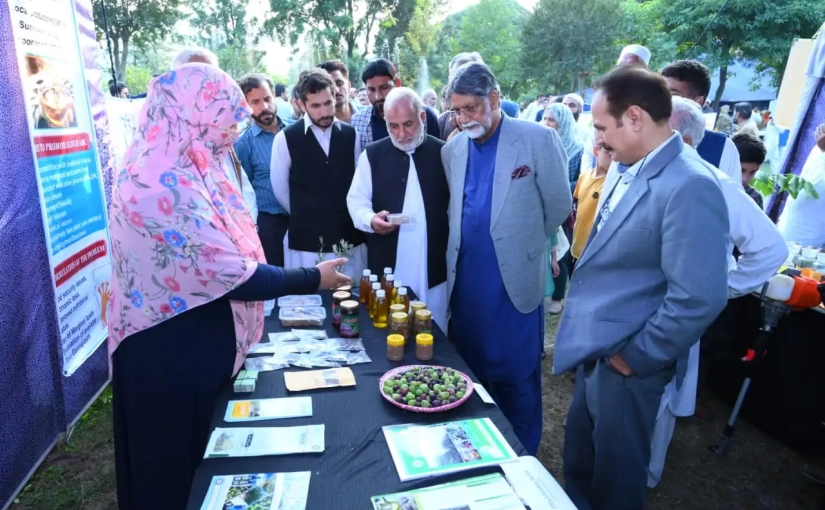Muzaffarabad ( AJ & K): An agricultural exhibition was organized here under the auspices of the department of agriculture, Muzaffarabad.
The stalls of locally produced fruit, vegetables, and agricultural products were set up by local farmers and various units of the agriculture department.
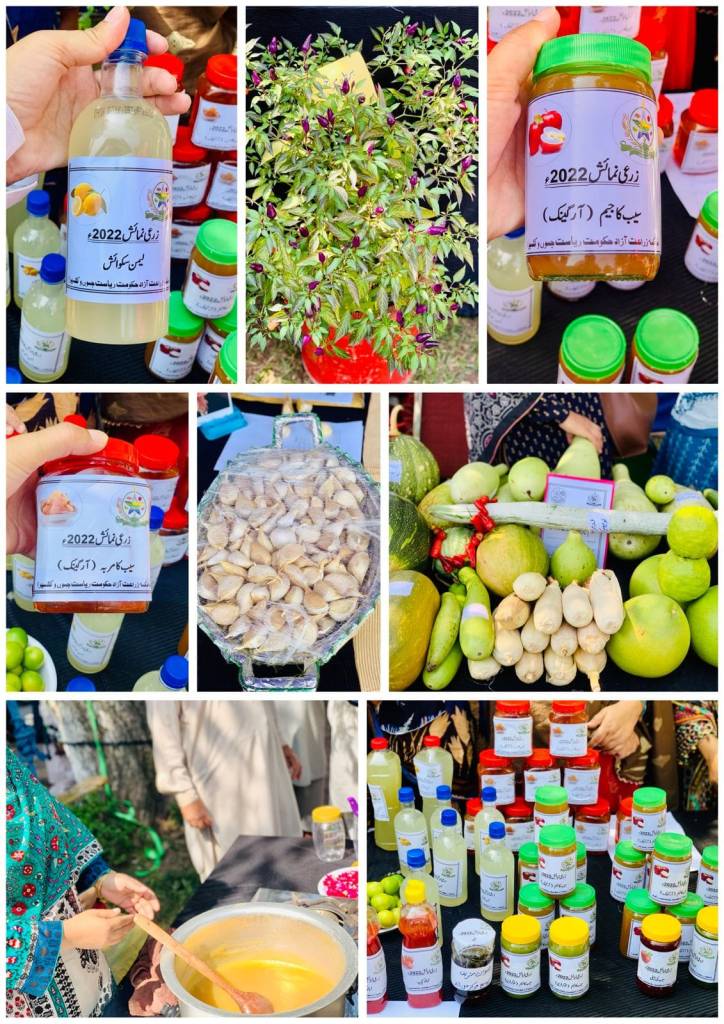
The landowners were given awareness and demonstration about agricultural farming, agro-medicines, and machinery.
Director of agriculture Khawaja Masood Iqbal gave a briefing to Minister of Agriculture Sardar Mir Akbar Khan about locally produced olive products. The minister of agriculture praised the efforts of the departments and said that connecting with the land is the need of the time.
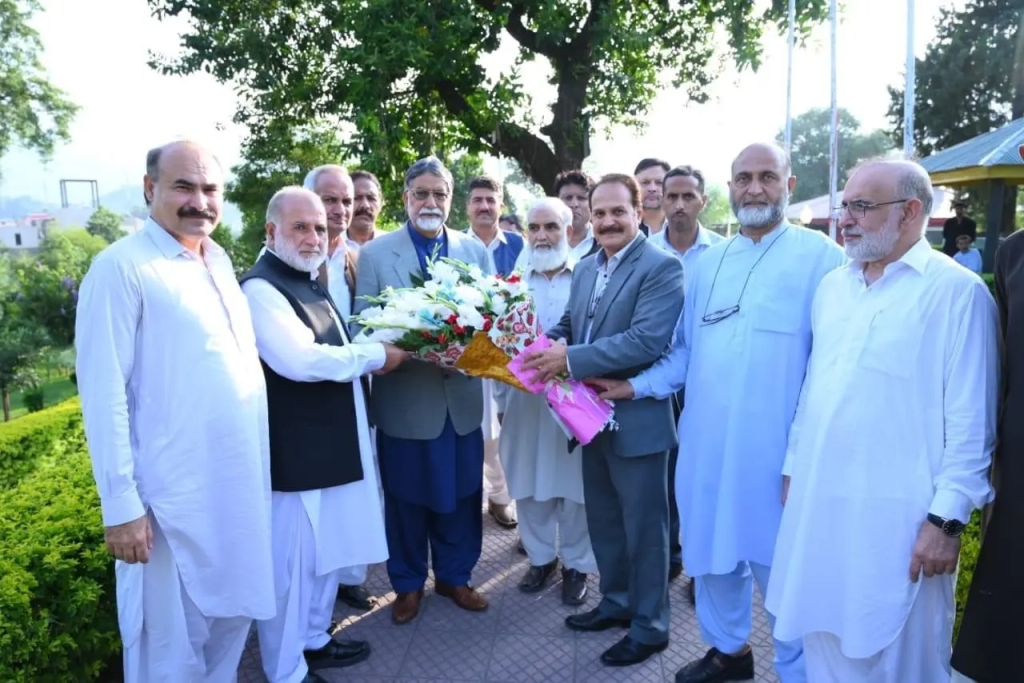
He further said that agriculture is the biggest sector affecting the national economy, and if our needs are met at the local level, peoples’ economic condition will improve and the revenue of the state will also increase.
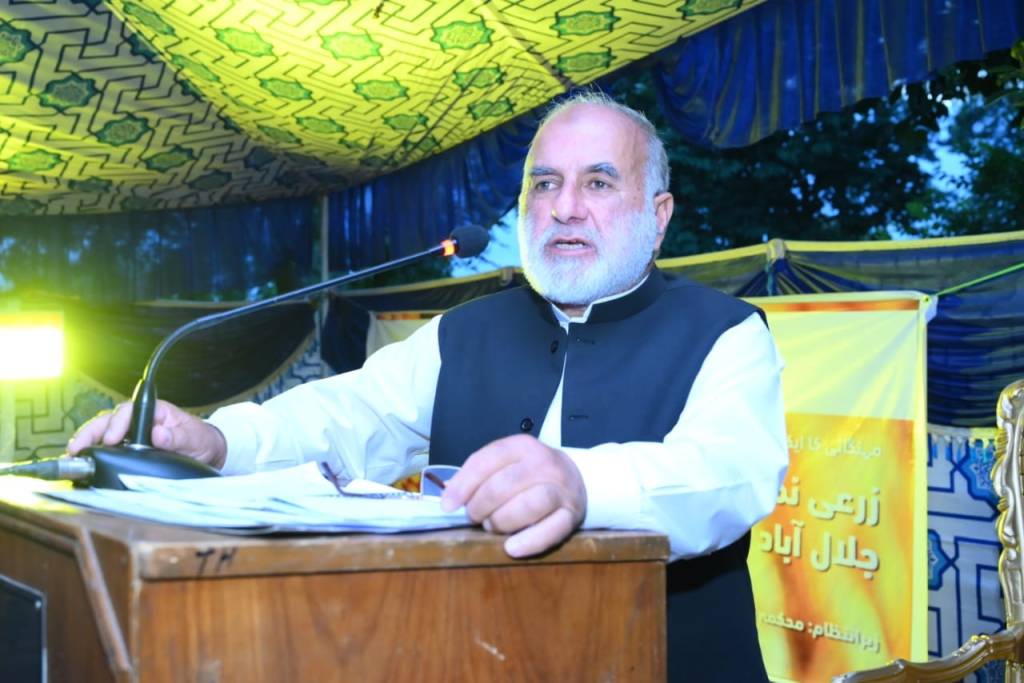
“We can complete the production of vegetables and meat at the local level, and in this regard, the department of agriculture will continue its efforts”. He said that women have an important role in kitchen gardening.
Speaking at the event, Secretary Agriculture and Livestock Sardar Javed Ayub said that Azad Kashmir is the watershed of the entire country and we are trying to make the Azad region a food basket for Pakistan.
Our mission is that every region should be able to meet the local demand. He congratulated the organizers for organizing the exhibition. The agriculture minister also gave shields to those who won prominent positions in the stalls. The farmers of Muzaffarabad, Jhelum Valley, and Neelam district had prepared stalls of fresh crops, fruits, and vegetables.
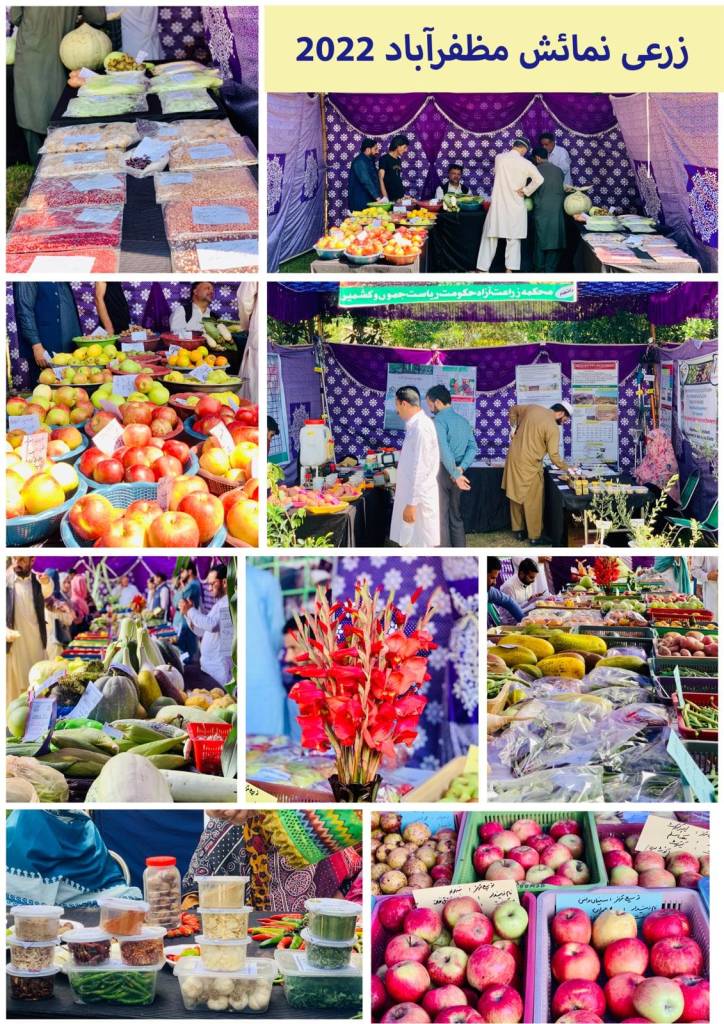
The exhibition was inaugurated by Minister of Agriculture Sardar Mir Akbar Khan. While the secretary of agriculture Sardar Javed Ayub, Islamic Relief Representative Zeeshan Maqbool, Vice President National Bank of Pakistan Naheed Yusuf, Director Agriculture Sardar Zareen Khan, and others also addressed the opening ceremony.
Director General Agriculture Tariq Mehmood Bande and Director General ASMA Raja Gulzar also addressed the opening ceremony.
Director Research Khawaja Masood Iqbal, Deputy Director Agriculture Muzaffarabad Amina Rafi, and others were also present on this occasion.
